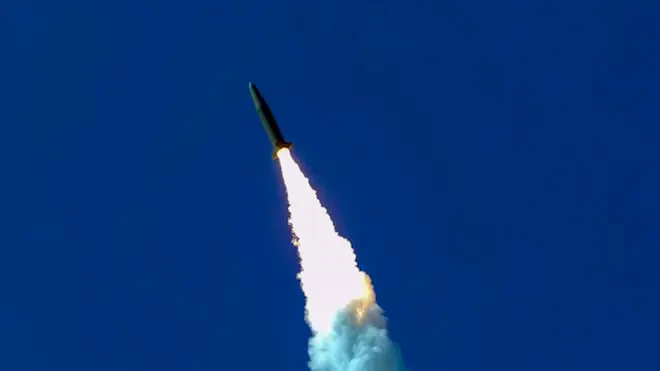
Matt Frei 10am - 12pm
17 October 2021, 10:24 | Updated: 17 October 2021, 11:59

The US has been left stumped after China tested a nuclear-capable hypersonic missile in August that circled the globe before speeding towards its target.
The hypersonic missile demonstrates an advanced space capability that caught US intelligence agencies by surprise, raising questions as to whether the US underestimates China's military capabilities.
The missile missed its target by about 24 miles, but demonstrated China has made progress on hypersonic weapons.
One of those briefed on the intelligence told the FT: "We have no idea how they did this."
Read more: UK – US flights to resume from 8 November after 19-month ban
The US, Russia and China are all developing hypersonic weapons, including glide vehicles such as the one tested by the Chinese.
Glide vehicle hypersonic missiles are launched into space on a rocket but orbit the earth under their own momentum.
They are capable of speeds five times the speed of sound and do not follow a fixed trajectory, making them hard to track.
They are launched at low trajectory, meaning they could reach targets more quickly than ballistic missiles despite having slower top speeds.
Read more: Norway bow and arrow attack 'appears to be act of terror' as five killed

Nigel Inkster, former MI6 Chief on China's rising power
The Chinese embassy declined to comment, but spokesperson Liu Pengyu said China always pursued a military policy that was "defensive in nature" and its military development did not target any particular country.
Taylor Fravel, an expert on Chinese nuclear weapons policy said a hypersonic glide vehicle armed with a nuclear warhead could help China "negate" US missile defence systems which are designed to destroy incoming ballistic missiles.
The news comes as China continues to expands its military forces and nuclear capabilities and amid rising tensions in the region with Taiwan.
China flew a record number of jets in Taiwanese airspace on National Day on 1 October.
Tensions between the US and China have risen in recent years and show no sign of subsiding under the Biden administration, with China accusing Washington of being overly hostile.